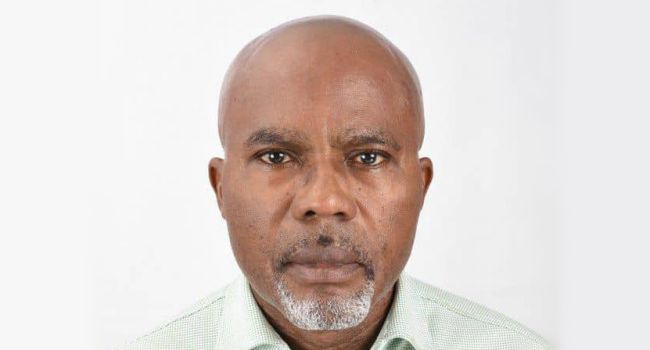
WHAT we have had since the return of democracy (rule by civilians really) in 1999 has been more government and less governance. Successive administrations have steadily expanded governmental institutions without a commensurate positive impacts on the lives of Nigerians. The number of ministries in the states and at the federal level has been on the rise. The same goes for the number of commissioners or ministers as the case may be. Government departments have also exploded so much so that many Nigerians have lost count and track. Their functions are also blurred. The story is worse as it concerns agencies. These creations are not informed by the desire to serve the majority of our people. The ministries, departments and agencies (MDAs) mushroom as jobs for the boys. And drainpipes on the commonwealth. They are centres of mindboggling and unimaginable heists on our common patrimony. The situation is so bad that the government sometimes feigns embarrassment. Though in reality the government is not embarrassed. It’s only interested in selling dummies to the people. And successive administrations have elevated deceiving Nigerians to an art form.
The ongoing charade can be gleaned from this running and recurring story of more than 10 years and counting. In 2011, the People’s Democratic Party (PDP) president, Goodluck Jonathan set up what was formally called the Presidential Committee on the Rationalisation and Restructuring of Federal Government Parastatals, Commissions and Agencies. The panel subsequently became known as as the Oronsaye Committee after the name of its chairman Stephen Oronsaye. Oronsaye was a federal permanent secretary, and his committee had representatives from various ministries, departments and agencies as members. The panel sat for about one year, and its primary mandate was to review the then existing (it has become worse now) structure and operations of federal government agencies, with a view to streamlining, rationalising, and restructuring them for greater efficiency and effectiveness.
The committee submitted its recommendations in 2012 to the same regime that set it up. Beyond making pious statements, Jonathan did nothing concrete about the report. He was just one year into his own administration after serving out the remainder of the first term of his running mate, President Umar Musa Yar’Adua, who died in office in 2010. In essence Jonathan had a fresh mandate of Nigerian voters, he had no looming election, he set up the committee, and yet he had no balls to implement the recommendations of his own committee. Three years later, Jonathan sought reelection with a promise, among other promises, to implement recommendations made to him three years earlier. Of course, he was defeated. A man who could not explain his failure to effect changes he promised after three years could not be trusted to act differently if armed with a new mandate. The PDP was also swept away in the gale of sacking. In comes the All Progressives Congress (APC) regime of Nigeria’s affliction, Maj.-Gen. Muhammadu Buhari, in 2015. He was touted and promoted as Nigeria’s messiah. But he turned out to be a disaster. The jury is still out on who between Buhari and Bola Ahmed Tinubu, the current occupant of the presidential villa, will be the worst in the history of this country. Buhari vowed to implement the Oronsaye Committee recommendations. He did not. He failed spectacularly. By the way, he failed in almost all he attempted to do in the eight years of his presidency. However, Buhari succeeded only in achieving one thing – taking Nigeria backwards by one generation or 30 years. I did not make up this – read the determinations of many personages on Buhari’s performance, and the current lamentations of his party men who succeeded him.
Key recommendations of the Oronsaye Committee which have remained on the shelf for 13 years included reduction of statutory agencies from 263 to 161, the abolition of 38 agencies, merger of 52, and reversion of 14 to departments within ministries; abolition of controversial agencies such as the federal character commission, fiscal responsibility commission, and the national poverty eradication programme; merger and restructuring of various agencies including the national agency for the control of aids (NACA) with the centre for disease control, and the national emergency agency (NEMA) with the national commission for refugee, migration, and internally displaced persons (NCFRMI); subsuming and relocating the service compact with all Nigerians (SERVICOM) to function under the bureau for public service reforms (BPSR), and the niger delta power holding company (NDHC) to be relocated to the ministry of power. It was estimated then that if the recommendations were implemented the federal government would be saved almost N1 trillion in operational expenses. The ultimate objective of the recommendations was to streamline government operations, eliminate redundancies, and improve service delivery.
Like Jonathan and Buhari, Tinubu has also embarked on playing games with Nigerians on the imperatives of minimum government and maximum governance. In 2014 Jonathan’s attorney – general Mohammed Adoke headed the white paper committee. Nothing came out of it. In 2021, Buhari set up two committees to implement this same report. One committee was headed by a former head of service Bukar Aji with the mandate to review the Oronsaye report and the government white paper. Ms. Amal Pepple chaired the other committee which had the responsibility of reviewing MDAs created between 2014 and 2021. In July of 2022, Boss Mustapha, secretary to the government of the federation under Buhari, established yet another white paper committee, headed by Ebele Okeke, to review the report of the Pepple committee. Obfuscation was, still is, the name of the game. Nigerians are supposed to lose track, and be lost in the maze of committees and panels while nothing is accomplished. Of course, Buhari failed to implement the report. Meanwhile, since 2012 that the game had been on, successive administrations had been busy creating more MDAs, and ballooning the recurrent expenditures and sundry frivolous expenses of the federal government. President Tinubu who has also said he would cut the cost of governance has about 50 ministers in his Cabinet, the highest in the last 26 years. He, it was, who signed a 2024 budget that allocated about N344 billion to the national assembly; the completion with N21 billion of a mansion as the official residence of the vice president; the purchase of a $150 million presidential jet; the procurement of a presidential limousine estimated at hundreds of millions of Naira, and annual recurring procurements of a fleet of luxury sport utility vehicles (SUVs) for government and non-gobernment officials. After discounting the minor operatives there are between 12-15 principal spokespersons in the presidency.
Apart from MDAs, successive administrations have found ways to continue to run bloated government to the pain of citizens. One of such means which has gained traction is the creation of the so-called regional development commissions. So far about five have been created for the north west geo-political zone, for the north east, for the south east, and one for the south west. The south south, a geographical absurdity in terms of name, already has a longstanding equivalent called the Niger Delta Development Commission (NDDC). Concerning these creations the north central remains an orphan. All the commissions have their own bureaucracies including chairmen, managing directors, executive directors, non-executive directors, representatives of special interests, and sundry staff members. There’s nothing ‘developments’ about these zonal commissions. They are creations to reward party hacks, and to serve as officially centrally funded clusters for ‘snatch, grab and run’ 2.0 in 2027. Apparently, the only critical qualification for appointment into these commissions is the possession of the APC party membership card. To be competent or a technocrat is a surplus to requirements. The recently created ministry of regional development has an allocation of N2.493 trillion in the 2025 budget now before the national assembly. In the allocation NNDC gets N776.5bn; north west commission, N585.9bn; south west, N498.4bn; south east, N341.3bn; while the north east gets N291bn.
Maximum government and minimum governance was popularized by a former Prime Minister of India,Atai Bihari Vajpayee. It refers to a situation where the government’s role is overly expansive, intrusive, and controlling, but its ability to effectively govern and deliver public services is limited. As obtains in Nigeria it implies an overbearing and centralised state that tries to control every aspect of citizens’ live often through bureaucracy and red tape. With minimum governance, a maximum government fails to provide basic public services, ensure law and order, and promote economic growth. This concept highlights the tension between the government’s desire to control and its ability to deliver. The idea is that an overbearing government can actually lead to less effective governance. A maximum government is characterized by bureaucratic red tape, inefficient public services, corruption and cronyism, and inadequate law and order, as well as public safety. Interestingly, the current Indian Prime Minister Narendra Modi is a champion of minimum government and maximum governance, the very opposite of his predecessor’s position. By limiting government overreach, Modi has been credited with creating a more favourable business and investment environment, improving public services, and enhancing the overall well-being of Indians including lifting over 250 million citizens out of poverty in the 10 years from 2014-2024. For context, it means that Modi lifted the equivalent of the combined populations of Nigeria (206m), Ghana (35m), Lesotho (2.1m), Equatorial Guinea (1.6m), Guinea Bissau (1.6m), Mauritius (1.2m), Djibouti (1.05m), Comoros (860,600), Cape Verde (500,000), Sao Tome and Principi (230,000), and Seychelles (105,000) out of poverty within 10 years. And every president in Nigeria has enjoyed two terms of four years each, and yet our country is the poverty capital of the world. We are not lacking examples to learn from. Our problem is that partisan politics trumps everything. We have partisan politicians who are preoccupied with, and consumed by, the next election.



